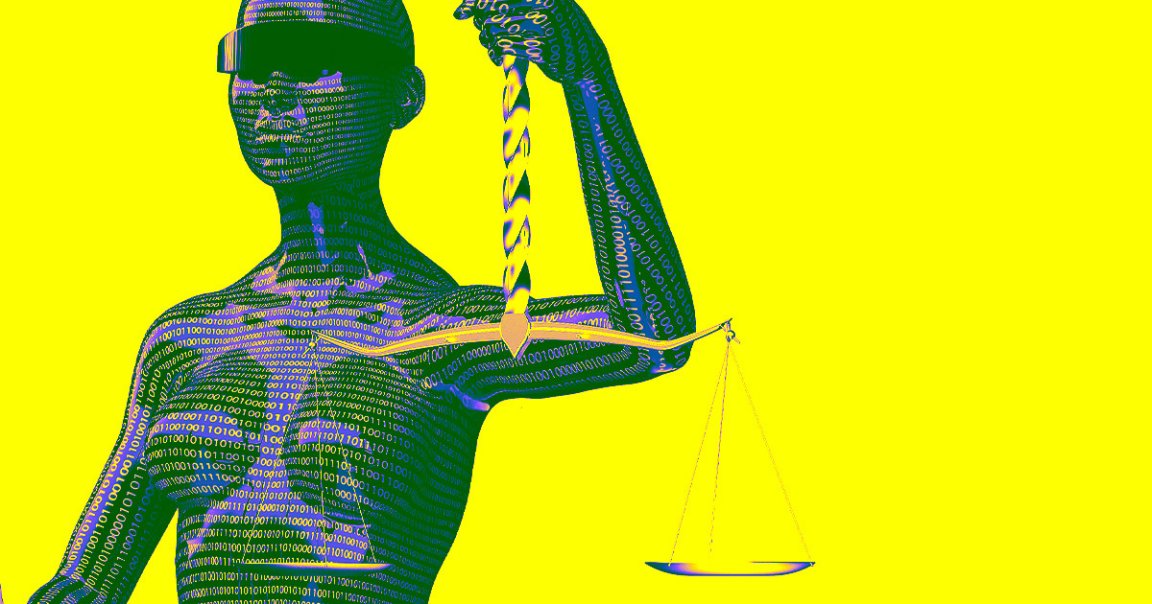
With artificial intelligence having already changed the way we work — or at least the way bosses think work should be done — for the worse, one computer scientist is warning that it could get much, much worse if robots begin being used to enforce the law in all its stupidity.
“If you’re not worried about the utter extinction of humanity,” AI researcher Eliezer Yudowksy wrote in a tweet, “consider this scarier prospect: An AI reads the entire legal code — which no human can know or obey — and threatens to enforce it, via police reports and lawsuits, against anyone who doesn’t comply with its orders.”
To be fair, Yudowsky is often accused of being an “AI doomer,” a meme-laden term for the type of oft-deserved expert alarmism one sees regularly in climate research but also, increasingly, in the AI space as well.
Then again, his point is salient not only because AI lawyers and algorithmic law enforcement tools have long been a thing — just recall the gross consequences of policing via facial recognition, for instance — but also because it makes a lot more sense than some of the other applications the tech’s being used for.
Whereas having AI write articles or create art is almost always going to fail the smell test because creativity is subjective and distinctly human, laws have far less heart and are purposefully strict as a means of governing humanity’s purportedly ungovernable nature (or so law lovers have been saying since time immemorial).
Some laws, of course, are undeniably good: the ones against murder, against harming children and animals, and against, say, your landlord deciding on a whim to lock you out of your house and never let you back in.
But as anyone who read Cracked.com back in the day will tell you, there are quite a few laws out there that either don’t make sense or are so antiquated, the concept of enforcing them is goofy. From the many, many sodomy laws on the books around the globe to the weird, random ones that must have funny stories behind them,
Though the concept of AI-inflected law seems particularly salient with a full year of ChatGPT mania behind us, algorithms have been used for all kinds of legal tasks for years now. Take, for instance, the many consumer-focused AI tools and products that can help simplify “legalese” into digestible English and help one figure out how to sue or be sued. One of these tools was so well-received, it won its creators an innovation award from Hofstra University last year.
On the flip side of that same coin, there is the all-too-possible prospect that AI might not only be used to help regular people navigate the law, but also help those who take it upon themselves to enforce them do so with the unflinching execution of the Terminator. That’s a genuinely terrifying thought: an AI that obstinately enforces every trivial rule you didn’t even know you broke, with the goal of drowning you in stress, paperwork, and legal bills.
When one naysayer suggested that an AI trained on the legal code would be a “net good” because “then we will simplify the law to one that makes sense and not one where literally everyone is a criminal,” Yudowsky had a pretty perfect retort: “if humanity was capable of doing that we’d have done it already.”
There is, of course, a non-zero chance that the noted researcher is just doing his doom thing and that nobody is going to feed the legal code into a legal AI that may then decide it is the arbiter for all law.
“If you think that’s a dumb scenario, by all means go back to worrying about the utter extinction of humanity!” Yudowsky exclaimed.
More on AI and the law: Politician Admits He Used ChatGPT to Generate New Law